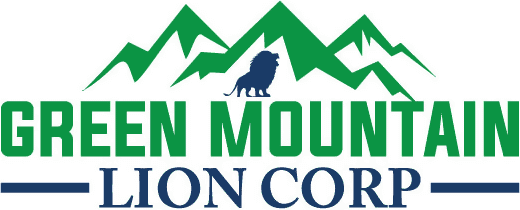Conducting a highly informative and cohesive interview that feels successful for both sides is an art form! It can take years for a hiring manager to perfect their questions, delivery and ability to hear the deeper answer. Many books have been written on the topic, and for good reason. As an executive management recruiting team, we’ve heard it all – good and ‘bad,’ so here’s our compilation of hiring manager interviewing tips:
1. Remember It’s A Conversation
When conducting an interview, you shouldn’t just rifle off one question after another. Instead, a conversational interview includes a response and even some story sharing after each answer. Be open to having a conversation and truly learning about the candidate – their qualifications, personality, and how they can add value to your company. Engage with them on a much deeper level to truly understand their thought process. Nothing screams intimidation, and “get me out of here” more than awkward silences and note scribbling! A back and forth conversation, while still asking your interview questions, creates a more relaxed atmosphere and cuts the intimidation factor that interviews tend to come with.
2. Get Clear on Your “Why”
When you have the privilege of sitting on the side of the interview table that allows you to evaluate candidates, make sure you know the why behind your questions and go for the pertinent information. What are you really looking to learn? Do you really want to know what flavor of ice cream a candidate would be if they could choose? If you’re not Ben or Jerry, this question isn’t likely to yield useful information, but it may set an odd tone for the remainder of the interview and waste precious time. You likely have 30-60 minutes with a candidate who is excited about getting to know you and learning more about this job opportunity. Don’t waste a minute!
Do your homework, understand the candidate’s background and formulate questions to fill in the blanks. For example, if your role involves customer service and you have a challenge with on-time delivery, a good question may be “Describe a time you were not able to deliver a product or service to your customer on time”. You already know your candidate will face this issue on a daily basis, so it’s important to understand how they’ve handled this situation in the past.
Need a dynamic leader that effectively works cross functionally? Try asking, “Give me some examples of how people in other parts of the organization use your group as a resource”. Worried a leader may be distracted with their own tasks? Ask them what they have done on a consistent basis to ensure that their direct reports feel valued for their contributions. This type of behavioral based question will likely mirror your potential employee’s performance in this role. Once you and the interview team have asked your questions and have addressed each area of competency; compare notes, share specific examples, and chose the best candidate(s) to advance.
Pro Tip: Don’t just ask questions that check boxes, but ask questions that uncover how well they perform those tasks. If there are red flags, make sure you ask the right questions to expose the root cause of those reservations.
3. Don’t Ask Weird Questions
An interview is stressful for both sides of the table – you’re both trying to figure each other out. Oftentimes to ease the tension and dig further, “fun” interview questions are used. You’ve heard them, “How would you solve problems if you were from Mars?” or “You’ve been given an elephant. You can’t give it away or sell it. What would you do with the elephant?”
It’s true, you can uncover a lot about your candidate and reveal what kind of problem solver and thinker they are. However, there’s something to be said about how you frame and respond to these questions. We’ve heard candidates come back from interviews saying, “It went great until the end when they seemed to want nothing more than to mess with me.” The questions about Mars, elephants, omelettes and desert islands are many times prefaced with statements like, “Oh I love these, now is when it gets interesting!”. Then, after an answer is given, interviewers go silent with smirks on their faces while scribbling down notes. That innocent attempt at easing the tension with playful humor may have an unintended impact. The mind of even a well qualified candidate can start spinning and you may not find out what they’re fully capable of. Or, the candidate knocks the interview out of the park from start to finish, “fun” questions and all, but they turn down the job because they have a bad taste in their mouth.
We’re not saying don’t ask, “How many square feet of pizza are eaten in the US each year?” but we recommend being straightforward about it. Maintaining the same level of professionalism throughout all aspects of the interview will help with this. When asking the tension breakers, you can of course read the room, but a safe bet is to go right into them while holding back the urge to snicker or exchange glances with the other hiring managers at the table. Explain what will happen next, “These questions may seem like they’re a little out of left field but we ask them for a reason.” Laughs are OK if it’s your intention to change the tone of the interview, just make sure they’re not at the expense of your candidate. Another thing you can try is to craft relatable questions. “You mentioned earlier you liked tennis, I’ve always wondered this, can you tell me why a tennis ball is fuzzy?” This will present them with a familiar topic while having to expand on the meat of the question. You’ll get to witness their full ability to explain something with little distraction. Yes, you want to test your candidate but you also don’t want to set them or your company up for failure.
Think back to times when you’ve been the candidate on the other side of the table. When hit with a weird question with snickering and looks between hiring managers, did you feel comfortable enough to give fully honest and open answers? If a hiring manager asked you basic questions with yes or no answers, did you feel like you had the chance to really describe some of your most successful projects? Your goal as the interviewing hiring manager is a complicated mix of setting the tone, forming your questions carefully, thinking ahead of time and on the fly, making your candidate feel comfortable, building a relationship, and even more, so try out our tips and keep practicing!

